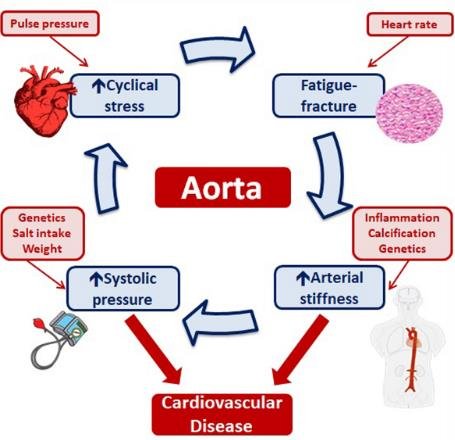A new drug that combines an angiotensin receptor blocker and a neprilysin inhibitor has shown promising results in improving arterial stiffness, a major risk factor for cardiovascular disease, in a hypertensive patient.
What is arterial stiffness and how is it measured?
Arterial stiffness is a condition where the arteries lose their elasticity and become rigid, making it harder for the blood to flow through them. This increases the pressure on the heart and the risk of heart failure, stroke, and kidney damage.

One of the methods to measure arterial stiffness is the cardio-ankle vascular index (CAVI), which reflects the stiffness of the aorta, the main artery that carries blood from the heart to the rest of the body, and the peripheral arteries in the legs. CAVI is calculated by dividing the pulse wave velocity, which is the speed at which the blood pressure wave travels along the arteries, by the blood pressure at the time of measurement. A higher CAVI indicates a higher degree of arterial stiffness.
How does the new drug work and what are its benefits?
The new drug, called sacubitril/valsartan or ARNI, is a dual-acting angiotensin II-receptor and neprilysin inhibitor in a single pill. Angiotensin II is a hormone that causes vasoconstriction, or narrowing of the blood vessels, and increases blood pressure. Neprilysin is an enzyme that breaks down natriuretic peptides, which are hormones that cause vasodilation, or widening of the blood vessels, and lower blood pressure. By blocking both angiotensin II and neprilysin, ARNI reduces blood pressure and improves vascular function.
ARNI has been approved for the treatment of chronic heart failure in many countries, based on clinical trials that showed its superiority over conventional drugs in reducing mortality and hospitalization. However, its use for hypertension is still limited and under investigation.
A recent case report published in the International Medical Case Reports Journal described how ARNI improved CAVI in a 72-year-old man with hypertension who did not respond well to valsartan alone. The patient had a high CAVI of 13.5 at baseline, indicating severe arterial stiffness. After three months of treatment with 80 mg/day of valsartan, his CAVI decreased slightly to 13.0, but his blood pressure fluctuations were still high. The treatment was then switched to ARNI with increasing doses up to 400 mg/day. After six months of ARNI therapy, his CAVI improved to 10.5, which is within the normal range, and his blood pressure was more stable.
The authors of the case report suggested that ARNI might have a direct effect on arterial stiffness beyond its blood pressure-lowering effect, by modulating the balance between vasoconstrictive and vasodilatory hormones. They also speculated that ARNI might prevent or reverse cardiac remodeling, which is the structural and functional changes in the heart due to chronic hypertension.
What are the implications and limitations of this case report?
This case report provides evidence that ARNI might be an effective option for hypertensive patients with high arterial stiffness who do not respond well to conventional drugs. Arterial stiffness is not only a marker but also a mediator of cardiovascular disease, and reducing it might have beneficial effects on preventing or delaying its complications.
However, this case report has some limitations that need to be considered before generalizing its findings. First, it is based on a single patient with a specific clinical profile, and it does not account for other factors that might influence arterial stiffness, such as age, sex, lifestyle, comorbidities, and genetic variations. Second, it does not compare ARNI with other drugs that have been shown to improve arterial stiffness, such as calcium channel blockers or renin-angiotensin system inhibitors. Third, it does not provide long-term follow-up data on the patient’s clinical outcomes or adverse events related to ARNI therapy.
Therefore, more studies are needed to confirm the efficacy and safety of ARNI for hypertension and arterial stiffness in larger and more diverse populations.
